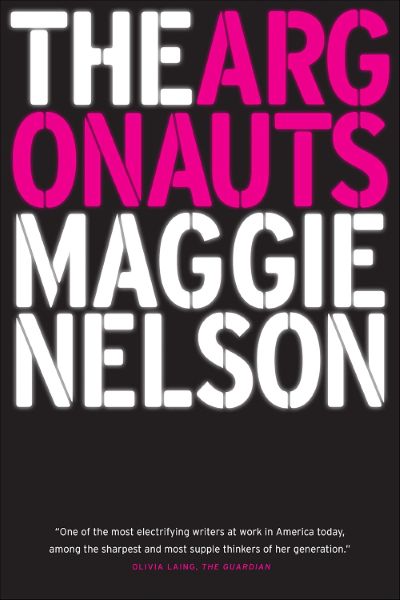Enemy Feminisms: TERFs, Policewomen, and Girlbosses Against Liberation
A provocative and unflinching examination of reactionary strands within feminism that work against liberation. Lewis traces two centuries of 'enemy feminisms' from imperial feminists to contemporary TERFs, revealing how feminist rhetoric can be weaponized to reinforce rather than dismantle systems of oppression.

📝 Book Review
“Enemy Feminisms: TERFs, Policewomen, and Girlbosses Against Liberation” represents Sophie Lewis’s most confrontational and theoretically rigorous work to date, delivering a devastating critique of the ways feminist language and identity can be deployed in service of oppressive rather than liberatory ends. Published in 2025 by Haymarket Books, this 320-page analysis provides what Lewis herself describes as “an unflinching tour of two hundred years of enemy feminisms,” challenging readers to confront the uncomfortable reality that not all movements claiming the feminist mantle actually work toward genuine liberation.
Sophie Lewis, author of the acclaimed “Abolish the Family” and a leading voice in contemporary radical feminist theory, brings her characteristic intellectual rigor and political clarity to this essential intervention in feminist discourse. As a theorist committed to revolutionary transformation rather than reformist accommodation, Lewis has consistently challenged feminist movements to examine their own complicity in systems of oppression. Her work spans queer theory, trans liberation, anti-capitalism, and abolitionist politics, positioning her uniquely to analyze the ways supposedly feminist politics can actually reinforce the very structures they claim to challenge.
Lewis’s approach throughout this work demonstrates her commitment to what she terms “ruthless criticism” of all existing conditions, including those within feminist movements themselves. Her methodology combines historical analysis with contemporary political critique, tracing the genealogies of reactionary feminist positions while demonstrating their continuing influence in current debates. This approach allows her to reveal not only the historical precedents for contemporary “enemy feminisms” but also the persistent logics that connect seemingly different manifestations of reactionary feminist politics across time.
The Central Argument: Feminism as Contested Terrain
The fundamental thesis of “Enemy Feminisms” rests on Lewis’s recognition that feminism itself constitutes contested political terrain rather than an inherently progressive political identity. Her analysis begins with the crucial insight that “feminism is not an inherent political good,” challenging the widespread assumption that any politics claiming feminist identity automatically deserves support from those committed to gender justice.
Lewis argues that this assumption has created dangerous blind spots within feminist movements, allowing reactionary politics to flourish under feminist cover while progressive feminists remain reluctant to engage in necessary critique. The result, she suggests, is a political landscape in which genuine liberation struggles find themselves opposed not only by openly patriarchal forces but also by movements that deploy feminist rhetoric while working to preserve existing hierarchies and systems of oppression.
This insight proves particularly crucial for understanding contemporary political dynamics, where movements like gender-critical feminism, carceral feminism, and corporate feminism have gained significant influence while claiming the mantle of feminist politics. Lewis’s analysis reveals how these movements function as “enemy feminisms” not because they explicitly oppose all feminist goals, but because they selectively appropriate feminist language and concerns in ways that ultimately serve to reinforce rather than dismantle oppressive structures.
Historical Foundations: Imperial and Colonial Feminisms
Lewis begins her historical analysis with nineteenth-century imperial feminisms, demonstrating how feminist rhetoric was deployed to justify and extend colonial domination. She examines how white women’s movements in colonial contexts often positioned themselves as civilizing forces, claiming that their mission to “rescue” colonized women from patriarchal oppression justified continued colonial control.
This analysis reveals a crucial pattern that persists throughout Lewis’s examination of enemy feminisms: the ways in which concern for women’s rights can be instrumentalized to justify broader systems of violence and oppression. Imperial feminists genuinely believed in certain forms of women’s advancement, but their feminism was fundamentally compromised by its investment in racial hierarchy and colonial domination.
Lewis’s examination of these historical precedents proves essential for understanding contemporary manifestations of enemy feminism. The same logics that allowed nineteenth-century feminists to support imperial violence while claiming to advance women’s liberation continue to operate in contemporary movements that claim feminist identity while supporting carceral violence, exclusionary policies, or exploitative economic systems.
The Carceral Feminist Complex
One of Lewis’s most significant contributions involves her analysis of what she terms “carceral feminism” - feminist politics that has become invested in policing, imprisonment, and state violence as solutions to gender-based oppression. She traces how feminist movements, particularly in the United States, became increasingly aligned with law enforcement and the prison system through campaigns around domestic violence and sexual assault.
Lewis demonstrates how this alignment represented a fundamental betrayal of feminist principles, transforming a movement originally committed to challenging state power into one that advocates for expanding the most violent apparatus of state control. She shows how feminist advocacy for increased policing and harsher criminal penalties has disproportionately harmed the very communities - particularly poor women, women of color, and trans women - that feminism should prioritize.
The analysis extends beyond simply critiquing policy positions to examine the underlying logics that made carceral feminism possible. Lewis argues that these developments reflect deeper problems within liberal feminist approaches that seek individual solutions to structural problems and that place faith in existing institutions rather than working to transform or abolish them.
Trans-Exclusionary Radical Feminism as Enemy Feminism
Lewis’s treatment of trans-exclusionary radical feminism (TERF politics) represents one of the most substantial and theoretically sophisticated analyses of this phenomenon to date. Rather than simply denouncing TERF positions, she provides a detailed examination of how gender-critical feminism functions as a form of enemy feminism that deploys feminist language and concepts to justify exclusion and violence against trans people, particularly trans women.
Her analysis reveals how TERF politics relies on essentialist understandings of gender that fundamentally contradict feminist insights about the social construction of gender categories. She demonstrates how gender-critical feminism’s investment in biological determinism aligns it with conservative and far-right politics rather than feminist liberation movements.
Lewis pays particular attention to the ways TERF politics has gained influence within mainstream feminist institutions and movements, often by presenting itself as defending “women’s rights” against trans inclusion. She reveals how this framing obscures the reality that trans-exclusionary politics actually undermines feminist goals by reinforcing gender binaries and essential categories that feminist theory has long challenged.
Corporate Feminism and the Girlboss Phenomenon
The book’s examination of corporate feminism and “girlboss” culture provides crucial insights into how feminist language has been appropriated by capitalist institutions to justify and extend exploitative practices. Lewis analyzes how corporations have learned to deploy feminist rhetoric to sell products, motivate workers, and deflect criticism while maintaining fundamentally anti-feminist practices.
Her analysis of the “girlboss” phenomenon reveals how individual success stories are used to obscure structural inequalities and to shift responsibility for systemic problems onto individual women. She demonstrates how this narrative framework encourages women to see themselves as entrepreneurs of their own oppression, working harder to succeed within existing systems rather than challenging those systems themselves.
Lewis’s critique extends beyond simply noting the hypocrisy of corporate feminism to examine how these developments represent a fundamental co-optation of feminist politics. She argues that corporate feminism doesn’t simply fail to advance feminist goals but actively works against them by channeling feminist energy into forms that serve corporate interests while demobilizing more radical possibilities.
The Psychology and Sociology of Enemy Feminisms
One of the most innovative aspects of Lewis’s analysis involves her examination of the psychological and social dynamics that make enemy feminisms appealing to their adherents. Rather than simply dismissing enemy feminists as bad actors, she seeks to understand the material and ideological conditions that make reactionary feminist positions seem reasonable or necessary to those who embrace them.
This analysis reveals how enemy feminisms often emerge from genuine experiences of oppression and legitimate concerns about women’s safety and welfare. However, these legitimate concerns become channeled into reactionary directions through frameworks that individualize structural problems, essentialize social categories, or place faith in oppressive institutions to provide solutions.
Lewis’s approach here demonstrates remarkable intellectual sophistication, refusing either to excuse enemy feminisms or to dismiss the concerns that motivate them. Instead, she works to understand how progressive impulses can be redirected in reactionary directions, providing insights that prove crucial for developing more effective strategies of political engagement and education.
Contemporary Political Dynamics
The book’s analysis of contemporary political dynamics reveals how enemy feminisms have gained particular influence in the current moment through their alignment with broader reactionary movements. Lewis examines how gender-critical feminism has found common cause with far-right politics, how carceral feminism has aligned with law-and-order conservatism, and how corporate feminism has become integrated into neoliberal governance strategies.
These alignments, Lewis argues, reveal the fundamental character of enemy feminisms as political formations that may use feminist language but ultimately serve to reinforce existing power structures rather than challenge them. She demonstrates how enemy feminisms function as useful tools for reactionary forces precisely because they provide feminist cover for anti-feminist politics.
The analysis proves particularly valuable for understanding current debates around trans rights, sex work, policing, and economic inequality. Lewis reveals how enemy feminist positions in these areas consistently align with conservative and far-right politics rather than progressive feminist movements, despite their claims to represent authentic feminist positions.
Intersectionality and Coalition Building
Throughout her analysis, Lewis demonstrates how enemy feminisms consistently fail tests of intersectionality, prioritizing the concerns of privileged women while ignoring or actively harming marginalized communities. She shows how this pattern reflects deeper problems with approaches to feminism that center white, middle-class, cisgender, heterosexual women’s experiences while marginalizing others.
Her analysis reveals how genuine feminist politics requires ongoing attention to questions of intersectionality and coalition building, recognizing that feminist liberation cannot be achieved through approaches that leave existing hierarchies intact. She demonstrates how enemy feminisms typically emerge from approaches that seek to advance some women’s interests without challenging the broader structures that create and maintain inequality.
Toward Liberatory Alternatives
While “Enemy Feminisms” is primarily a work of critique, Lewis concludes by gesturing toward the possibilities for genuinely liberatory feminist politics. She argues that recognizing and confronting enemy feminisms is essential for building feminist movements capable of achieving real transformation rather than simply reforming existing systems.
Her vision of liberatory feminism emphasizes solidarity across difference, commitment to systemic transformation rather than individual advancement, and recognition that feminist liberation is inseparable from broader struggles against all forms of oppression. She argues for feminist politics that are explicitly anti-capitalist, anti-carceral, and committed to the liberation of all people rather than the advancement of privileged women within existing systems.
Methodological Innovations
Lewis’s approach throughout the book demonstrates significant methodological innovations in feminist theory and political analysis. Her combination of historical genealogy, contemporary political critique, and theoretical analysis provides a model for rigorous political scholarship that maintains clear commitments to liberation while engaging seriously with the complexity of political dynamics.
Her willingness to engage in “ruthless criticism” of feminist movements themselves represents a crucial intervention in feminist discourse, challenging the tendency to avoid internal critique in favor of unity against external opponents. Lewis demonstrates how this approach actually strengthens rather than weakens feminist movements by forcing confrontation with internal contradictions and limitations.
Contemporary Relevance and Impact
“Enemy Feminisms” arrives at a crucial moment in feminist politics, when debates around trans inclusion, sex work, policing, and economic inequality have revealed significant divisions within feminist movements. Lewis’s analysis provides essential tools for understanding these debates and for distinguishing between progressive and reactionary positions within feminist discourse.
The book’s influence extends beyond academic feminist theory to broader political movements, providing activists and organizers with frameworks for understanding and countering reactionary politics that deploys feminist language. Her analysis proves particularly valuable for trans liberation movements, sex worker rights advocates, prison abolitionists, and other groups that find themselves opposed by movements claiming feminist credentials.
Implications for Feminist Practice
The implications of Lewis’s analysis for feminist practice prove far-reaching and challenging. Her work suggests that effective feminist politics requires constant vigilance against the co-optation and instrumentalization of feminist language and identity. It demands ongoing critique of feminist movements themselves and refusal to accept feminist credentials as sufficient evidence of progressive politics.
Her analysis also implies the need for feminist movements to develop more sophisticated understandings of how progressive politics can be redirected in reactionary directions. This requires attention not only to explicit opponents but also to the ways progressive movements can be internally undermined by approaches that serve existing power structures while claiming liberatory goals.
Through her comprehensive and unflinching analysis, Sophie Lewis has provided an essential resource for understanding one of the most significant challenges facing contemporary feminist movements. “Enemy Feminisms” stands as both a crucial diagnostic work and a call to action for those committed to genuine feminist transformation rather than feminist appropriation. Her analysis reveals the urgency of developing feminist politics capable of distinguishing between authentic liberation struggles and their reactionary imitators, providing the theoretical foundation necessary for building truly transformative feminist movements.
Book Info
Related Topics
🛒 Get This Book
 Buy on Amazon
Buy on Amazon Related Books
Book Discussion
Share your thoughts and opinions on this book and exchange insights with other readers
Join the Discussion
Share your thoughts and opinions on this book and exchange insights with other readers
Loading comments...


